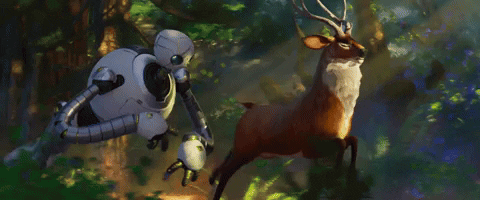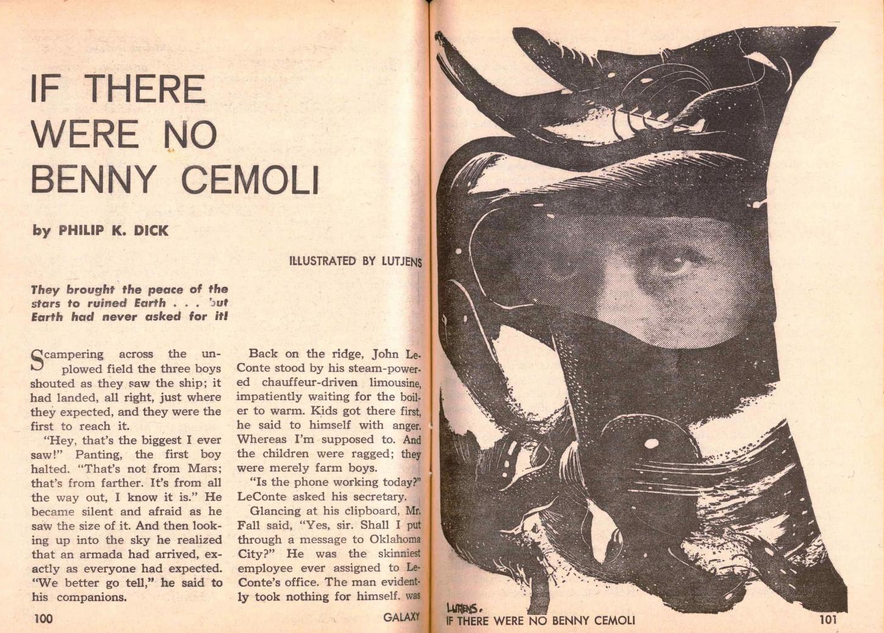Isaac Asimov's Robot Novels: The Blueprint for AI
Published on: December 2, 2024
The Foundation of Robotics and AI Ethics

Isaac Asimov’s Robot Novels and short stories are some of the most influential works of science fiction in history. Written across decades, these stories don’t just entertain—they set the groundwork for how humanity conceptualizes artificial intelligence (AI) and our evolving relationship with it. At the heart of Asimov’s universe lies the Three Laws of Robotics, a fictional ethical framework that has transcended literature to influence real-world AI development.
The Three Laws of Robotics
First introduced in Asimov’s 1942 short story "Runaround", the Three Laws state:
- 1. A robot may not injure a human being or, through inaction, allow a human being to come to harm.
- 2. A robot must obey the orders given it by human beings, except where such orders would conflict with the First Law.
- 3. A robot must protect its own existence as long as such protection does not conflict with the First or Second Laws.
These simple yet profound principles have become a touchstone in both fictional and real-world discussions about the ethical programming of AI.
Asimov’s Vision of AI-Human Symbiosis
While many science fiction stories of Asimov’s era portrayed robots as existential threats, Asimov took a different approach. His robots were partners, tools, and occasionally, tragic figures. Through characters like R. Daneel Olivaw, a humanoid robot who solves mysteries alongside detective Elijah Baley, Asimov explores themes of trust, collaboration, and the fine line between human and machine.
In novels such as The Caves of Steel and The Naked Sun, Asimov delves into the societal impacts of robotics, asking hard questions about prejudice, dependency, and what it means to be human.
The Robot Novels and AI Today
Asimov’s stories remain strikingly relevant in today’s age of AI development. His ethical frameworks and nuanced portrayals of human-robot relationships provide valuable insights for technologists and ethicists alike.
“What makes Asimov’s works so enduring is his belief in the potential for good. Unlike dystopian narratives that envision AI as destroyers of humanity, Asimov shows us a world where robots—and by extension, technology—can elevate us to greater heights.”
From addressing issues of bias and trust in AI to envisioning how humans and intelligent machines can collaborate, Asimov’s vision challenges us to create ethical, empathetic technology.
Final Thoughts
Asimov’s Robot Novels are more than just science fiction—they are blueprints for a future where humanity and AI coexist. By grounding his narratives in ethics, empathy, and mutual respect, Asimov provides a vision of what could be possible when humans and machines work together.
In today’s rapidly evolving technological landscape, Asimov’s stories remind us that the most critical aspect of AI isn’t the technology itself—it’s the people who create and use it.
Dune: Awakening - A New Era for MMORPGs ☀️
Published on: November 19, 2024
Looking Forward to Dune: Awakening
As a fan of both Frank Herbert’s Dune universe and the MMORPG genre, I can hardly contain my excitement for Dune: Awakening. The game promises to blend the epic storytelling of the Dune saga with the expansive, immersive worlds that only MMORPGs can deliver.
The idea of stepping onto the sands of Arrakis, navigating political intrigue, and forging alliances—or breaking them—in a persistent online world is thrilling. The developers have hinted at a mix of survival mechanics, large-scale battles, and a deeply immersive narrative. This could be a groundbreaking addition to the MMORPG landscape.
Archiving While We Create
As we eagerly anticipate the release of Dune: Awakening, I can’t help but think about the importance of archiving. Games like this are not just entertainment; they’re cultural artifacts that reflect our creativity, technology, and collective storytelling at a specific moment in time.
But MMORPGs are inherently ephemeral. Servers shut down, content gets patched out, and player-driven stories are often lost forever. If we don’t actively preserve these worlds as we create them, much of their richness could disappear.
So, how do we archive Dune: Awakening? Here are a few ideas:
- Capturing high-quality screenshots and video of gameplay.
- Documenting major updates, events, and community stories.
- Preserving concept art, trailers, and developer insights.
- Creating fan-driven projects like wikis and lore repositories.
The Role of Developers and Players
Developers play a critical role in ensuring their games are preserved. By releasing tools for private server hosting or creating offline versions of their games, they can help maintain accessibility long after the official servers go offline.
Players, too, have a responsibility. By sharing their stories, screenshots, and videos, they contribute to a living archive of the game’s legacy. Community-driven projects often serve as the backbone of preservation efforts, capturing not just the technical aspects of a game but also the emotions and memories tied to it.
Why It Matters
Dune: Awakening is more than just a game; it’s an extension of a science fiction franchise. Preserving it means preserving a piece of the Dune universe’s evolution and the broader history of gaming itself.
As we prepare to dive into the sands of Arrakis, let’s also think about how we can ensure this experience is never forgotten. After all, just as the desert teaches the Fremen to value every drop of water, the digital sands of MMORPGs teach us to cherish and preserve every moment.
Final Thoughts
Whether you’re a veteran MMO player or a newcomer drawn in by the allure of Dune, there’s something magical about stepping into a world like this. Let’s enjoy every moment, but let’s also remember the importance of preserving these experiences for future generations.
If There Were No Benny Cemoli ☀️
Published on: November 18, 2024

A science-fiction short story
There Were No Benny Cemoli is a science-fiction short story (or novelette) by Philip K.Dick published in the magazine Galaxy of december 1963.
You can find it on Internet Archive here.
Who is Benny Cemoli?
Benny Cemoli is not a man, but a fabrication. The story, set in the aftermath of a catastrophic war, follows a team of Terran reporters sent to a ruined planet to dig up newsworthy stories. When the journalists uncover articles referencing Benny Cemoli, a supposed revolutionary figure, they inadvertently unleash a narrative that spirals out of their control. Cemoli becomes a symbol of resistance, a rallying cry, and eventually, a dangerous myth that threatens to destabilize the already fragile interstellar relations.
What makes Benny Cemoli’s creation fascinating is how easily the media constructs him—and how quickly the masses accept him as real.
The Power of a Story
What if there truly were no Benny Cemoli? What if the reporters never discovered the fictitious character buried in the rubble? The absence of Benny might seem like a way to avoid the chaos he unleashed. But here’s the twist: it wasn’t Benny Cemoli himself that caused the upheaval—it was the story of Benny Cemoli.
Philip K. Dick’s genius lies in his understanding that stories have power. A name, a face, a slogan—these can ignite revolutions, topple regimes, or even rewrite history. Benny Cemoli didn’t exist, but his absence wouldn’t have stopped the machinery of narrative manipulation. It would have simply filled the void with another name, another idea.
Parallels in Our World
Reading the story in today’s context is chillingly relevant. Social media platforms often operate as echo chambers, amplifying half-truths, fabrications, and outright lies. Benny Cemoli is alive and well—only now, he takes the form of viral hashtags, meme culture, or AI-generated content. The line between fact and fiction has blurred, and the consequences are undeniable.
Just as the reporters in Dick’s story unknowingly created a figure larger than life, we, too, can unwittingly give life to dangerous myths. But does that mean we should stop telling stories? Absolutely not. Stories are what make us human; they allow us to dream, connect, and empathize. The cautionary tale of Benny Cemoli is not to avoid storytelling but to wield it responsibly.
Archiving Fictional Truths
As someone passionate about archiving, I can’t help but think about the preservation of stories like this one. Archiving isn’t just about preserving facts—it’s about understanding context. Stories like If There Were No Benny Cemoli remind us that even fictional truths can teach us about human nature.
When I archive a virtual world, a digital artifact, or a game’s storyline, I think of Benny Cemoli. What myths are we preserving? What stories are we choosing to highlight, and how might future generations interpret them? These questions keep me grounded and remind me of the responsibility that comes with curating history.
Final Thoughts
Benny Cemoli was never real, but his impact was undeniable. If there were no Benny Cemoli, someone—or something—else would have taken his place. The world Dick imagined is not so far removed from our own. Whether we’re building myths, dismantling them, or preserving them for posterity, we must remain vigilant about the narratives we create and share.
Flowers for Algernon☀️
Published on: November 18, 2024
Flowers for Algernon by Daniel Keyes is a profound and emotionally charged novel that explores the themes of intelligence, identity, and the ethical implications of scientific experimentation. Published in 1966, the story follows Charlie Gordon, a man with an IQ of 68, who undergoes an experimental surgery to increase his intelligence.
The Journey of Charlie Gordon
Charlie's journey is both inspiring and heartbreaking. As his intelligence increases, he gains a deeper understanding of the world around him, but also becomes painfully aware of his past limitations and the societal prejudices he faced. His newfound intelligence allows him to form meaningful relationships and pursue intellectual endeavors, but it also isolates him from his former life and the people he once knew.
One of the most poignant aspects of the novel is Charlie's relationship with Algernon, the mouse who underwent the same experimental surgery. Algernon's eventual decline serves as a grim reminder of the potential consequences of the procedure, foreshadowing Charlie's own fate.
Ethical Implications
The novel raises important ethical questions about the limits of scientific experimentation and the responsibility of researchers towards their subjects. Charlie's transformation is not without its costs, and the story forces readers to consider the moral dilemmas surrounding the pursuit of knowledge and progress.
Keyes masterfully explores the complexities of human intelligence and the societal constructs that define it. Through Charlie's eyes, we see the world in a new light, questioning our own perceptions of intelligence and the value we place on it.
The Power of Storytelling
Flowers for Algernon is a testament to the power of storytelling. It challenges us to empathize with characters who are often marginalized and overlooked, reminding us of the inherent worth and dignity of every individual. The novel's emotional depth and intellectual rigor make it a timeless classic that continues to resonate with readers.
As someone passionate about archiving and preserving stories, I find Flowers for Algernon to be a poignant reminder of the importance of documenting and understanding the human experience in all its complexity. The novel's exploration of intelligence, identity, and ethics is a valuable addition to our collective narrative, one that deserves to be preserved and shared with future generations.
Final Thoughts
In a world where intelligence is often equated with success and value, Flowers for Algernon offers a powerful counterpoint. It reminds us that true intelligence lies not in our IQ, but in our capacity for empathy, understanding, and compassion. Charlie Gordon's journey is a poignant reminder of the human spirit's resilience and the enduring power of storytelling.

